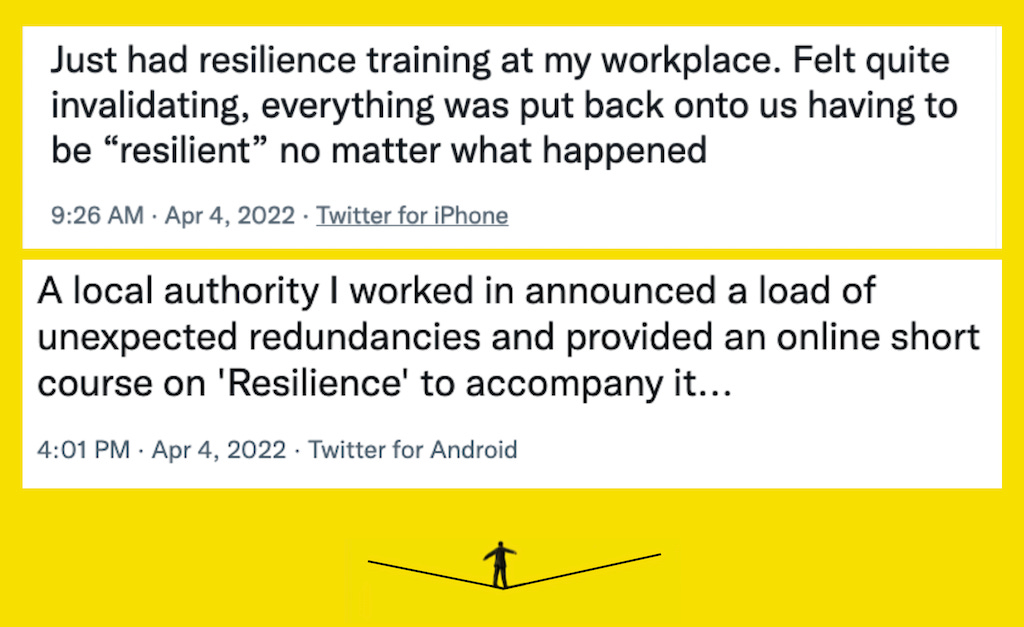An urgent need to rethink
FT's 'best business book of the year' - now in paperback
As a society we’ve found ourselves worrying that resilience is in dwindling supply. It’s been compounded over the last three years.
If someone admits to struggling we ask them to ‘be more resilient’.
But maybe the whole idea of resilience is a toxic myth?
Modern life is indisputably more stressful and demanding than in recent history.
Whether teachers in school, parents with their kids or bosses at work when we see someone struggling we think about ways we can train them to be more resilient.
By offering resilience 'training' it serves to suggest that resilience is something that an individual can switch on and off.
It suggests that resilience is something some of us have and some of us don't.
The subtext is that if you’re a winner you’ll suck it up.
There's two issues with this.
Firstly, making us believe that we need to be resilient is transferring responsibility from a broken system to the people it broke.
Secondly, it suggests that the answer to resilience is what those diagnosing it say it is.
Of course it would suit those people to suggest that resilience is an *individual* strength, because then they can dismiss those who don't show it as weak.
Let's see this old version of resilience for what it is: a toxic myth designed to keep us quiet, to hold ourselves to blame.
So, let's press reset on this toxic version of individual resilience.
Life gives us countless examples of real resilience out in the wild, for differentiation let's call it fortitude.
What fortitude always has in common is that it's a collective strength, a sense that we're all in it together.
Fortitude is the strength we draw from each other.
Amongst survivors of 9/11 those who shared their trauma with others (like police officers on duty that day) showed a much better recovery that those who went home and suffered alone.
An individualistic society inevitably leaves us disconnected and fragile.
Increasingly jobs are so demanding that there’s no time to build the warmth of genuine connections.
Leaders switch the blame & complain that there’s a new generation who aren’t resilient enough.
During the early weeks of the pandemic, a leading expert on teenage mental health found that teens who had an evening meal with their families each night reported their resilience went up and their depression went down.
Fortitude is the strength we draw from each other.
Let's banish the toxic myth of resilience and reclaim the word.
Fortitude - The Myth of Resilience, and the Secrets of Inner Strength is out now in paperback. Amazon / Hive








Yes! I’ve always had a problem with the word resilience. I completely agree that that word just puts more pressure on the individual. I love the idea of Fortitude, a sense of strength in community.
I've just started reading The Extended Mind, which talks about the importance of our relationships (among other things) as an important part of our thinking process. This links closely to what you are saying, I think. We are networked beings and we can do lots of things better if we harness the power of our network, rather than being our single node.